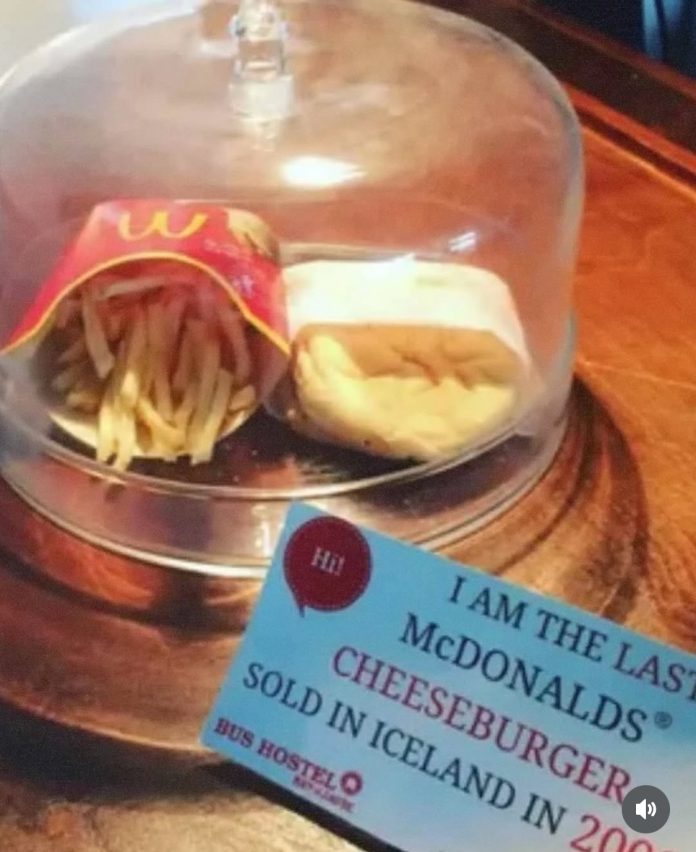‘When McDonald’s left Iceland in 2009, Hjortur Smarason bought a final burger and fries to test the claim that they never decompose. After three years with no visible decay, he donated them to the National Museum of Iceland, but they later returned it. Now, the meal sits on display at Notra House, a hostel in southern Iceland, where it’s live-streamed for curious viewers. 15 years later, it still looks almost untouched!’
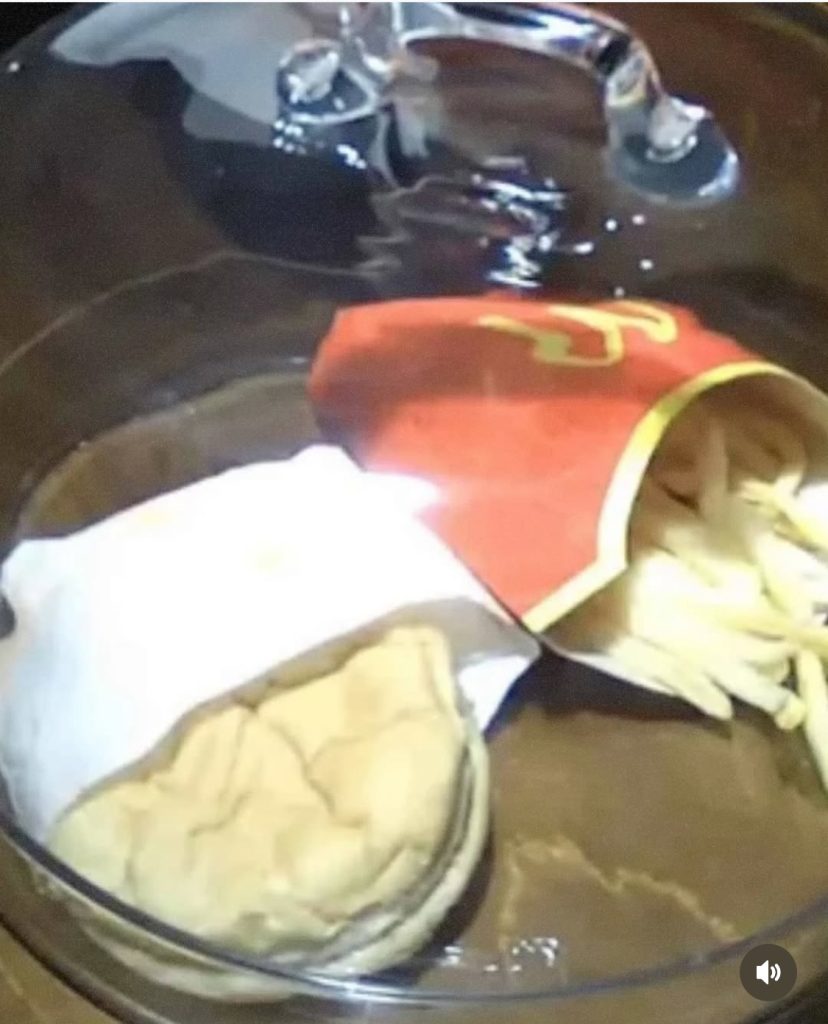
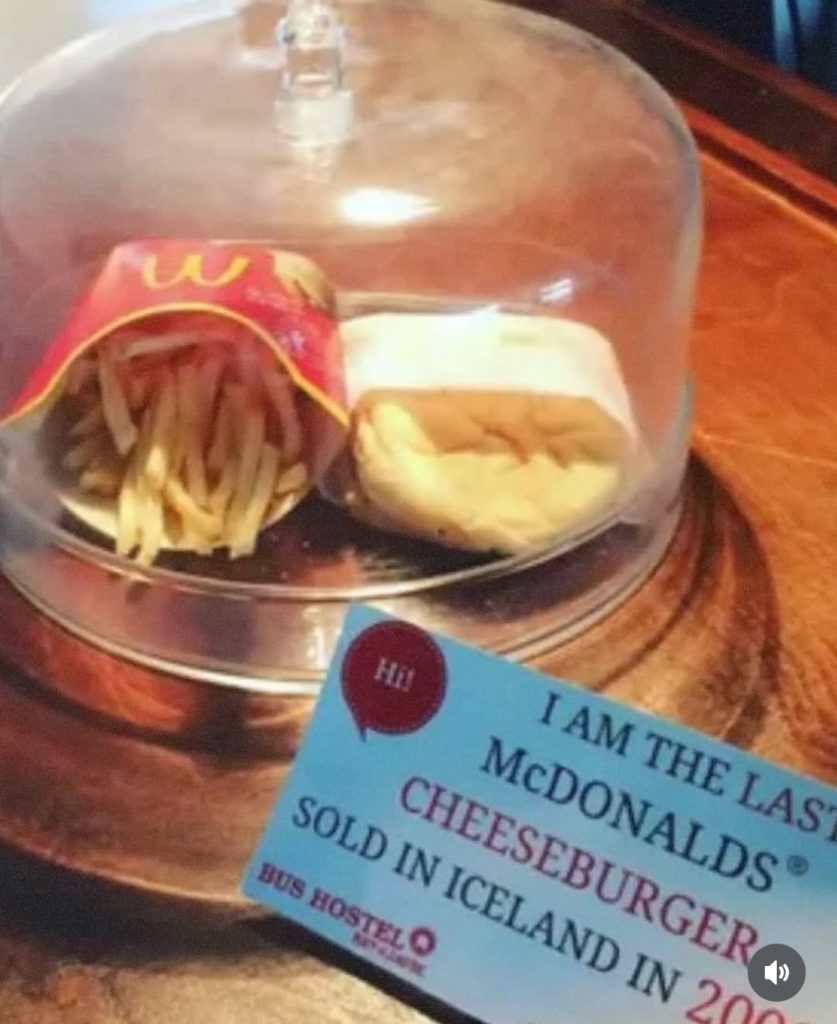
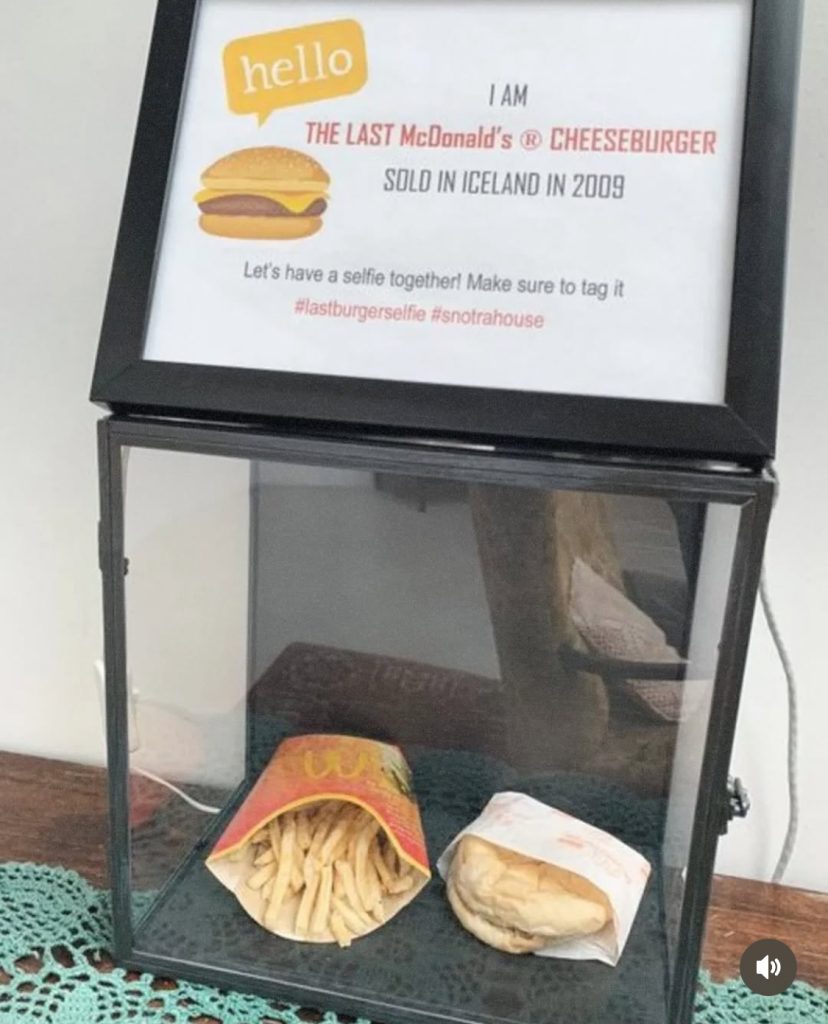
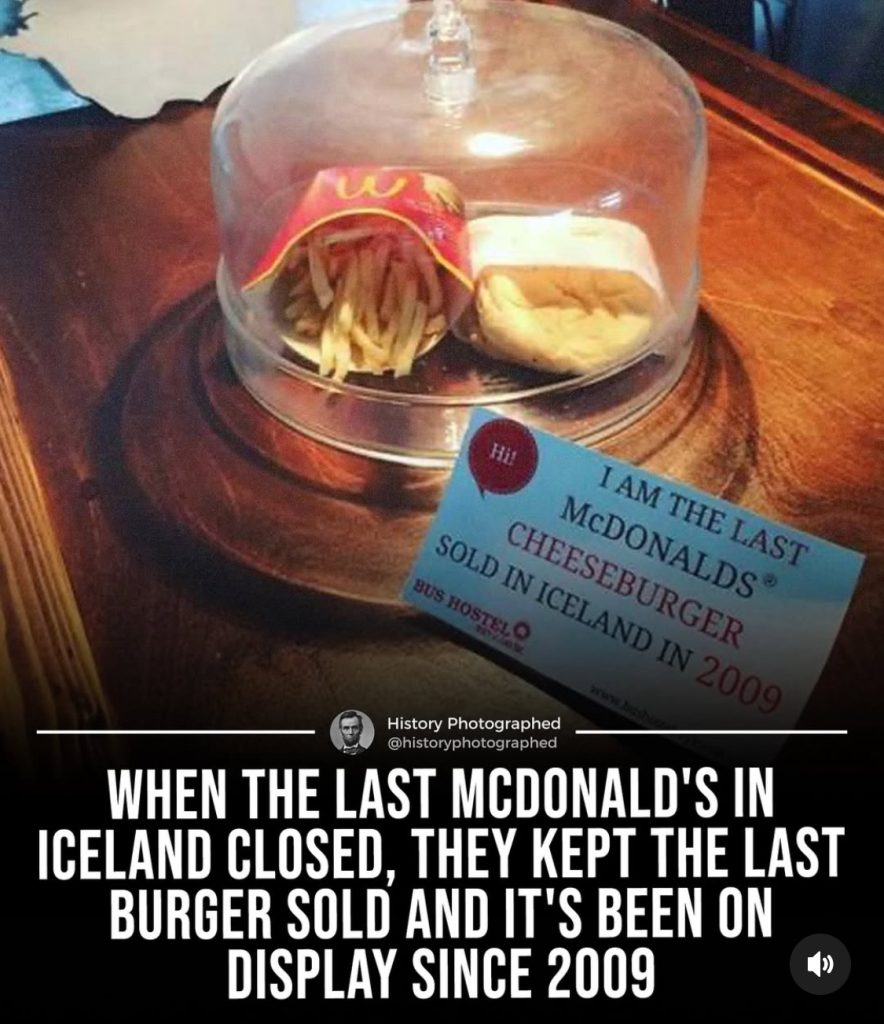
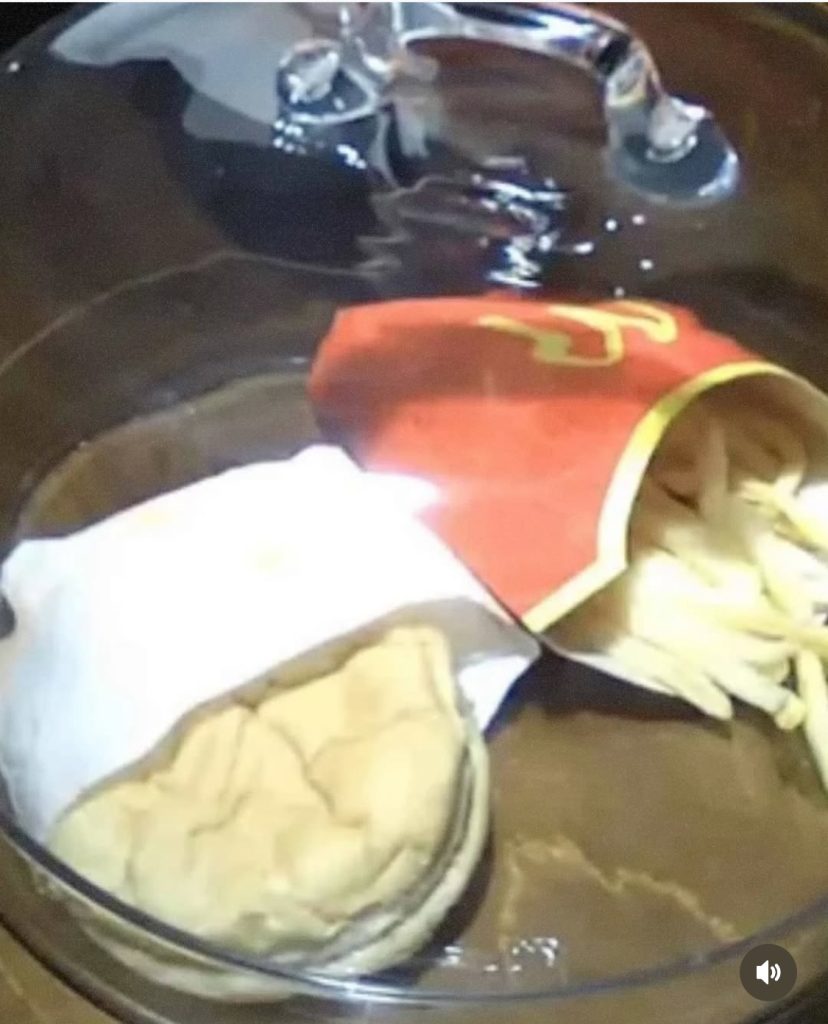
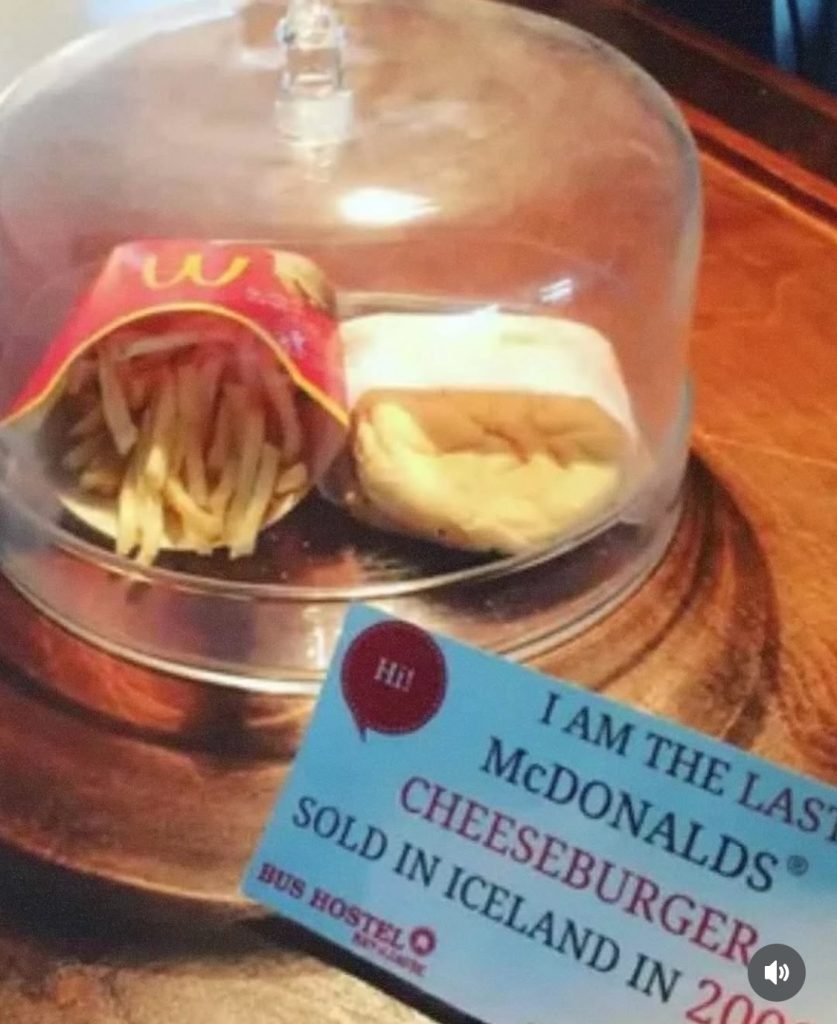
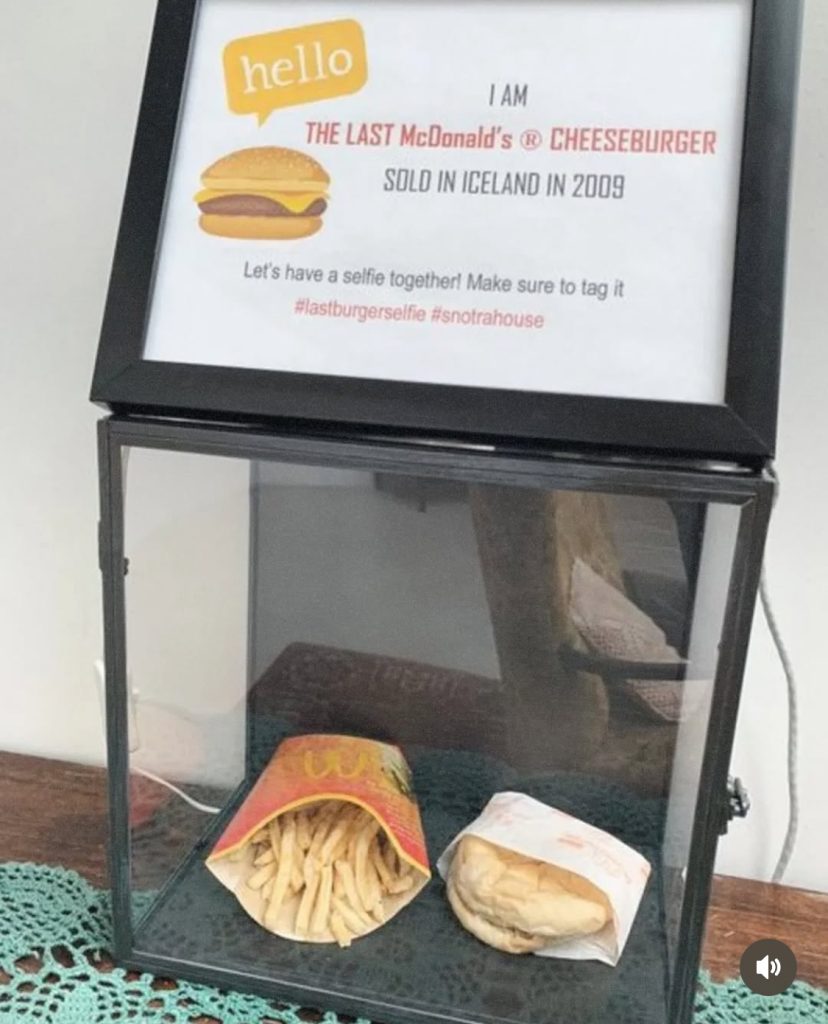
@historyphotographed
An Assessment of the Claim That McDonald’s Products Do Not Decompose
The claim that McDonald’s products, particularly their hamburgers and fries, do not decompose has circulated for years, often accompanied by images of seemingly untouched food years after purchase. This idea has sparked debates about the nutritional quality and preservative content of fast food. But how accurate is this claim, and what does science have to say about it?
The Origins of the Claim
The notion that McDonald’s food does not decompose gained traction in the early 2000s, largely due to anecdotal evidence and viral experiments. One of the most famous examples is a 2010 blog post by American artist Sally Davies, who documented a McDonald’s hamburger she kept for over a year. The burger showed little visible decay, leading many to conclude that the food was laden with so many preservatives that it was effectively immune to decomposition.
The Science of Decomposition
Decomposition is a natural process driven by microorganisms such as bacteria and fungi, which break down organic matter. For decomposition to occur, certain conditions must be met, including adequate moisture, warmth, and the presence of microorganisms. If any of these factors are absent or limited, decomposition slows down or stops altogether.
In the case of McDonald’s food, several factors contribute to its resistance to decomposition:
- Low Moisture Content: Many McDonald’s products, such as hamburgers and fries, are cooked at high temperatures, which removes much of their moisture. Without sufficient moisture, microorganisms cannot thrive, slowing down decomposition.
- Thin Patties and Small Portions: The thinness of McDonald’s hamburger patties means they dry out quickly, further inhibiting microbial growth.
- High Salt and Preservative Content: While McDonald’s does use preservatives to extend shelf life, the primary reason for the food’s longevity is its low moisture content rather than an excessive use of chemicals.
Scientific Studies and Experiments
Scientific investigations have largely debunked the myth that McDonald’s food is indestructible. In 2013, a group of students from the University of Nottingham conducted an experiment comparing the decomposition of a McDonald’s hamburger to a homemade burger. They found that both burgers decomposed at similar rates when exposed to the same conditions. The key difference was that the McDonald’s burger dried out faster due to its thin patty, creating an environment less conducive to microbial growth.
Similarly, food scientists have pointed out that any food with low moisture content, whether from McDonald’s or a home kitchen, will resist decomposition under the right conditions. For example, a slice of bread left out in a dry environment will also take much longer to mould compared to one kept in a humid setting.
The Role of Preservatives
While McDonald’s does use preservatives in some of its products, these are regulated and deemed safe for consumption by food safety authorities. The primary preservatives used include sodium benzoate and calcium propionate, which prevent the growth of mould and bacteria. However, these preservatives are not unique to McDonald’s and are commonly found in many processed foods, including bread, sauces, and snacks.
Public Perception and Misconceptions
The persistence of the “McDonald’s food doesn’t decompose” myth highlights broader concerns about fast food and its impact on health. Critics argue that the longevity of McDonald’s products is a sign of their unnatural composition, while supporters point out that the same principles apply to many other foods. The myth has been perpetuated by sensationalist media and a lack of understanding of the science behind decomposition.
In summary, the claim that McDonald’s products do not decompose is largely a myth rooted in misunderstanding rather than scientific fact. While McDonald’s food does resist decomposition under certain conditions, this is primarily due to its low moisture content and thin structure, not an overabundance of preservatives. Similar results can be observed with other foods when kept in dry environments. While it is always wise to be mindful of the nutritional content of fast food, the idea that McDonald’s products are indestructible is more fiction than reality.
In summary, the next time you see a photo of a decades-old McDonald’s burger, remember that it is not a testament to the food’s unnatural composition but rather a demonstration of how dehydration can slow down decomposition—a phenomenon that applies to many foods, not just those served under the golden arches.

